Sutter Health, California, US

Designed to support patients and attract new users, Ada was able to provide a reliable first step for seeking care across Sutter's network with more than 410,000 assessments completed.
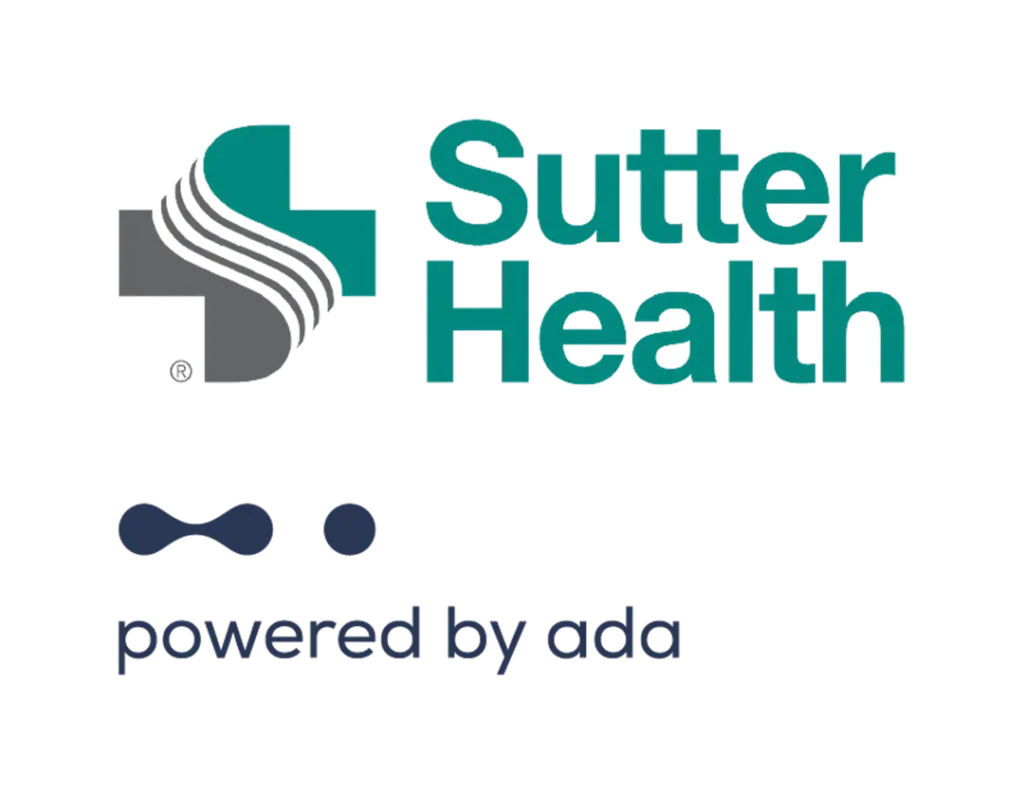
Support individuals to seek out care in the appropriate setting
Provide 24/7 access to care navigation
Reduce misdiagnosis and unnecessary treatment
Engage patients
Connect care experiences
of patients navigated to less urgent care
of users navigated away from same-day care
of assessments were outside clinic hours
assessment completion rate

Sutter users were able to query their symptoms themselves and access information without needing to contact Sutter as the first point of call. They could then connect with the appropriate setting based on their location, including walk-in care, urgent care, emergency room, primary care, pharmacy, virtual visits, and specialty care. Indeed, 47% of patients were navigated away from same-day care services. 1
Care navigation is particularly important during the night: 52% of assessments were outside clinic opening hours, 2 highlighting the need for reliable advice beyond usual times.
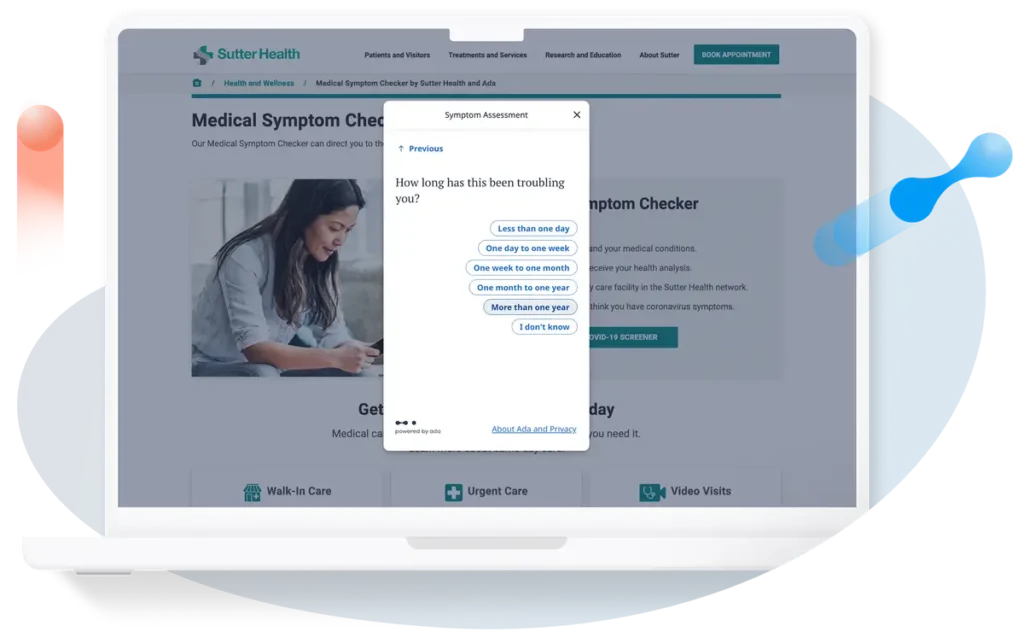
Ada enabled users to understand their care needs and urgency and either escalate to urgent care for high acuity or lower their care requirements if health complaints could be managed better in other settings. Around-the-clock access to care navigation helps eliminate the assumption that the ED is the first step in the patient journey for anyone who needs medical attention. This ensures emergency services can focus on patients who require that level of care.
With up to 90% completion, Ada helped redirect over 40% of users to less urgent care 1 , potentially reducing unnecessary pressure on the ED.
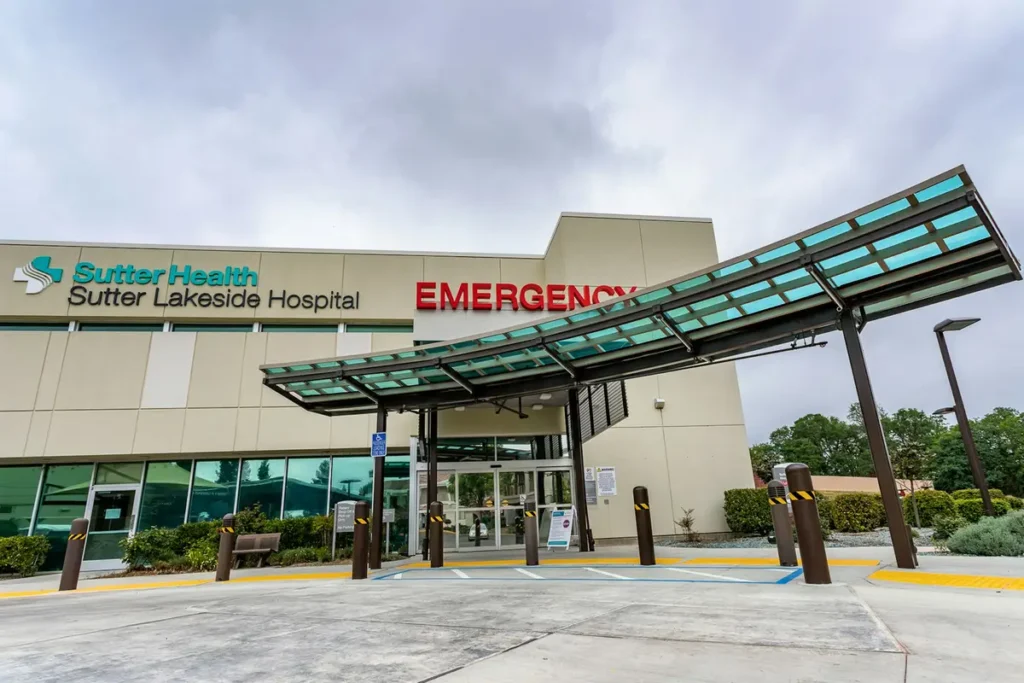
Ada supports people getting to the right care service when they need it. That means they’re more likely to receive an early diagnosis and effective treatment. Ada also collects relevant health information during assessments, such as if a person has diabetes, is pregnant, or has high blood pressure. This can save time in the clinic and can help reduce the risk of unnecessary, possibly harmful treatments.
Additional care navigation options were also been made available, including Scout by Sutter™, a nationwide service offering mental health support to young people who met the eligibility during an Ada assessment.

Following an assessment, users were found to be 10 times more likely to book an appointment online to attend an appropriate service, including a significant number of new patients in Sutter’s system. 1
There were initial concerns around the ‘digital divide’ and older users accessing the online tool; however, of the users who completed an assessment, 27% were over 50 years old.


"I think Ada made an already uncertain and daunting process much easier, and it helped me decide to go to urgent care for the start of my treatment and diagnosis."
Sutter Health user

"Essentially, we added hundreds of assessments per day without adding a single doctor to our mix... with the majority rating Ada as highly useful and helpful as they navigated care."
Dr. Albert Chan VP & Chief of Digital Patient Experience*

"Ada’s AI-powered technology provides patients with a self-guided assessment with a high degree of clinical accuracy. Patients can assess their care needs outside Sutter Health’s normal business hours and without directly contacting a physician’s office."
Guy Tennyson Director of Digital Health
During the COVID-19 pandemic, Sutter wanted to avoid unnecessary clinic attendance to reduce the risk of transmission through social contact. To help users navigate to appropriate services, Sutter swiftly deployed a dedicated Ada COVID-19 screener.
Sutter saw a 181% increase in the number of assessments per day, helping patients to quickly assess their COVID-related symptoms, informing them of the appropriate action, including isolation, testing, or directing users to virtual care services within Sutter’s network. COVID-19 is available in Ada’s knowledge base in the full assessment.

Recognizing the importance of collaboration and clinical buy-in when reviewing potential suppliers, Sutter, and their doctors:
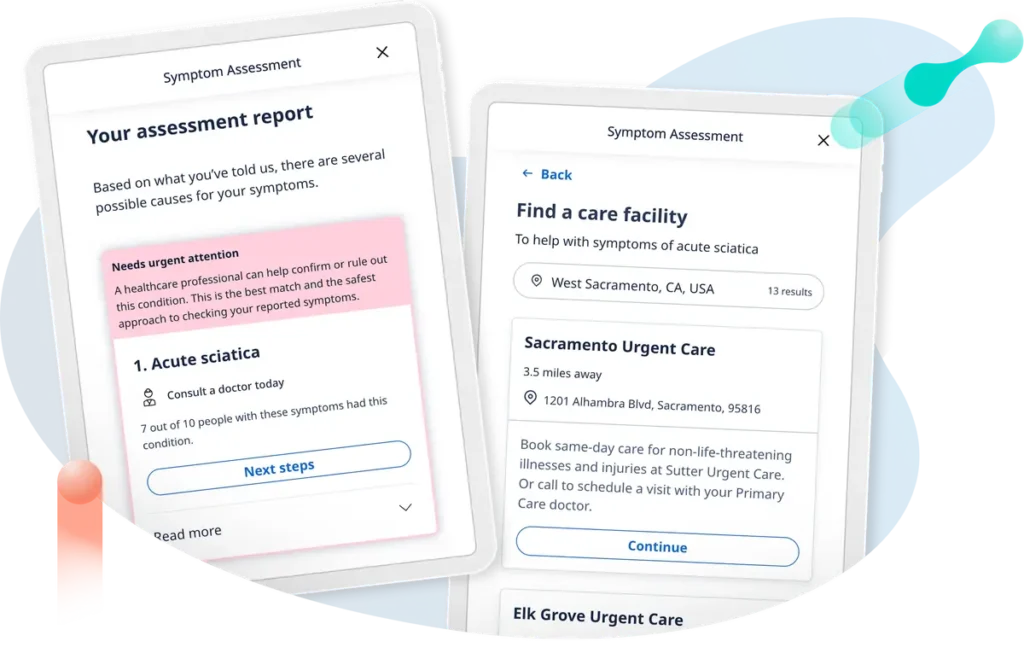
In the first peer-reviewed, real-world, published study into the triage advice of digital symptom checkers, Sutter - in partnership with Stanford University - analyzed over 26,000 individual Ada assessments.
They concluded that Ada’s care recommendations were comparable to those of human triage nurses, validating Ada’s advice safety and reassuring users of Ada’s medical quality. 3
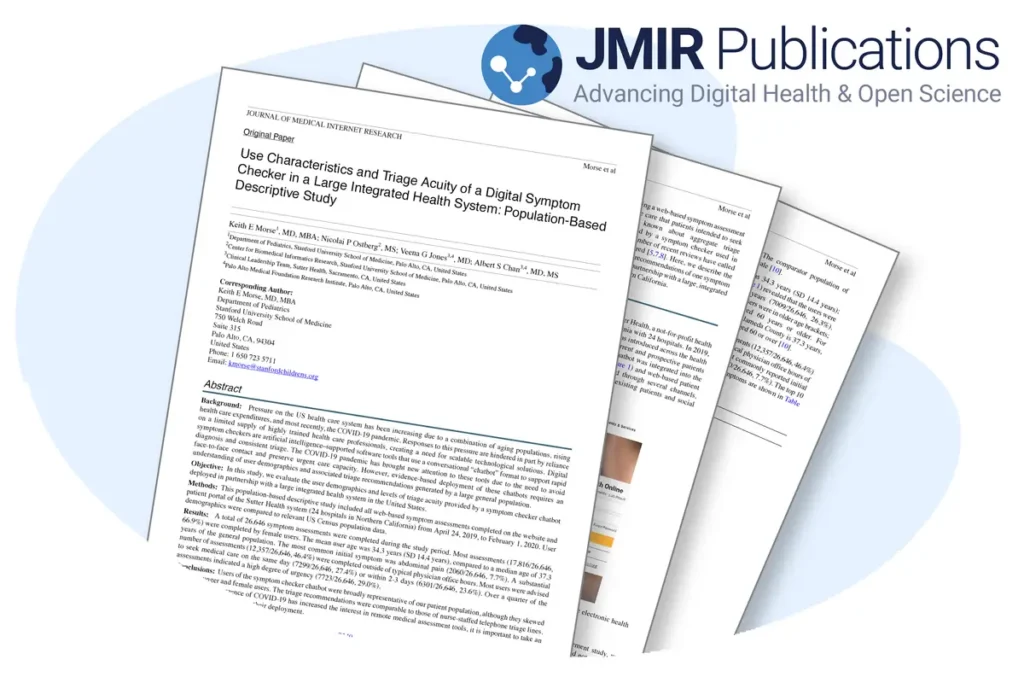
Sutter Health is a leading integrated healthcare network based in Northern California that prioritizes the highest levels of quality, access and affordability. Sutter is committed to personalizing healthcare for users and moving toward value-based care and proactive population health.

3.3m active patients

23 hospitals

50,000+ employees
12,000+ physicians

2,000 advanced care physicians

16,000 nurses
Main photo credit: Crista Jeremiason / The Press Democrat
*Source: HCI Group: DGTL Voices: Albert Chan, MD, Sutter Health’, www.youtube.com/watch?v=UlZ8MDNe2Jw
Data provided by Sutter Health
Proportion of patient assessments at Sutter Health completed between 06.00pm - 08.59am
Morse, K. et al (2020). Journal of Medical Internet Research, www.ncbi.nlm.nih.gov/pmc/articles/PMC7717918/